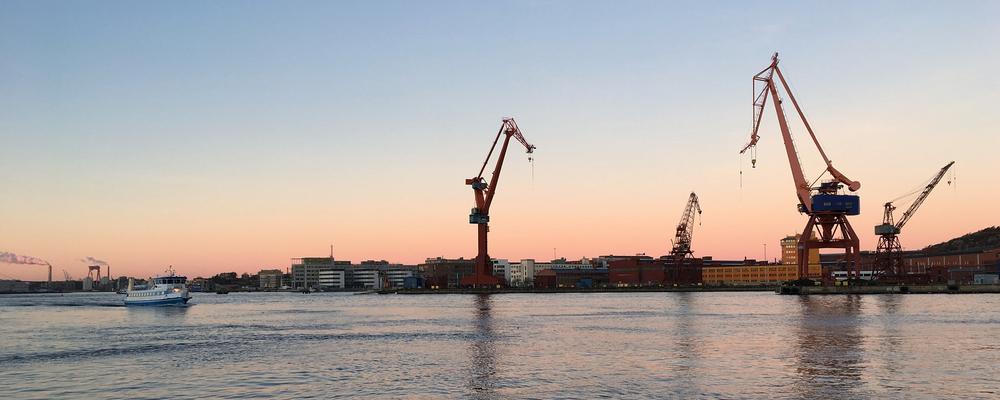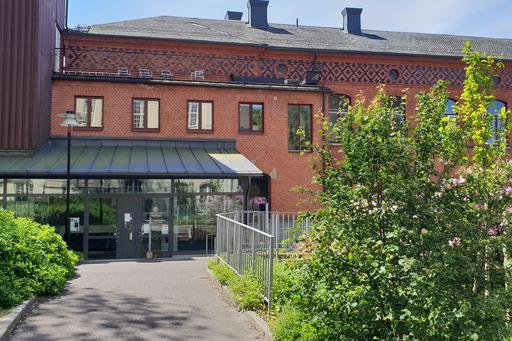
NESS - Nordic Environmental Social Science Conference: Emergency and transformation
If global environmental changes, including climate change, have taken decades to build up to an emergency, in 2020 we saw the almost instantaneous spread of a fatal virus that in a matter of weeks pushed global society into a humanitarian crisis, and soon also into a deep economic crisis and of late into a security crisis. The 15th Nordic Environmental Social Science Conference, hosted by the School of Global Studies, will be a chance for environmental social scholars to meet and discuss where the crises have brought us.
Venues
7-9 June, 2022, at the School of Global Studies, University of Gothenburg.
The conference will be held both at the Wallenberg Conference Center (Medicinaregatan 20A) and at the premises of the School of Global Studies (Konstepidemins väg 2B).
Please note that several workshops will take place in the Annedalseminariet building (Seminariegatan 1A), just next to the School of Global Studies.
- How to walk from Wallenberg Conference Centre to the School of Global Studies and Annedalseminariet (ca. 6 min walk, Google Maps).
- Find the rooms of the different workshops here: List of workshops and meeting rooms.

Registration
Registration to the conference closed on 20 May, 2022.
Conference theme: Emergency and transformation
When it rains it pours. If global environmental changes, including climate change, have taken decades to build up to an emergency, in 2020 we saw the almost instantaneous spread of a fatal virus that in a matter of weeks pushed global society into a humanitarian crisis, and soon also into a deep economic crisis and of late into a security crisis. The Covid-19 emergency will most definitely be a watershed in modern history, but where the rain will flow is too early to tell.
The 15th Nordic Environmental Social Science Conference (NESS), will be a chance for environmental social scholars to meet and discuss where the crises have brought us.
- What are the urgent contributions of environmental social science to these emergencies?
- Is the crisis an opportunity for accelerating since long necessary green transformations or a moment for patience, where resources should be directed toward the most urgent needs?
- Either or – what are the lessons learned by the Covid-19 crisis for a green transformation? Is the ‘strong society’ now back on the arena after decades of liberalizations, marketizations, and ‘just in time’?
- What are, then, the implications for democracy, governance, economic policies, and public discourses?
While the interconnectedness of emergency and transformation will gain special attention during the conference, we welcome contributions in areas related, but not restricted, to climate change, biodiversity, food, water, energy, natural resource extraction, bio-economy, rural and urban sustainability, and conservation. The conference workshops will cover various aspects of environmental social science, from the local to the global, from empirical papers over policy-relevant papers to conceptual and theoretical contributions. As is the tradition of NESS, the workshops are at the center of the conference, with plenty of time devoted to presentation and discussion of submitted papers.
Conference structure
The NESS conference consists of on the one hand common events, such as keynote speeches, joint panels, and social activities, and on the other, several workshops. The workshops – where junior and senior scholars meet and discuss common themes – are the central activity of this conference. The workshops follow a standing session format (similar to ECPR), which allows for substantive discussions on research in progress. The topics for discussion are defined by the individual workshop themes, and scholars currently working on the themes will be invited to participate.
The overall objective of the workshops is to facilitate and encourage participation and collaboration across social sciences, between younger and more established scholars and across countries. In order to achieve this, the size of each workshop is limited so that adequate time is allowed for each contribution. Each participant is expected to be carrying out research relating to the theme of the workshop, able to submit and present a paper (or work in progress) for the discussion or participate as a discussant. The ambition with this format is that the workshops allow for in-depth and coherent discussions of the respective themes and provide opportunities for potential joint publications or other continuing collaborations between the participants.
The organizer
The host, the School of Global Studies, is an interdisciplinary department consisting of several social sciences, including peace and development research, human ecology, and social anthropology. The organizing committee is further broadened to include environmental social scientists from several departments at the University of Gothenburg and Chalmers University of Technology. Together, we welcome Nordic and international researchers to NESS 2022 to stress the important role of environmental social science in times of emergency and transformation.